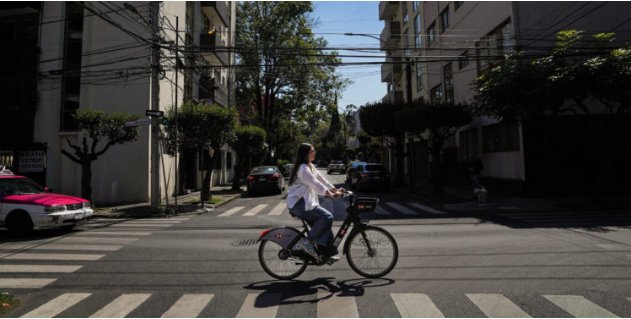Marina Kausar wasn’t sure what to call the three-month break she took after quitting her job.
After working in a series of jobs in finance and technology, Ms. Kausar, 30, was feeling stressed and overworked. In December 2023, with a bit of savings built up, she quit without another position lined up to focus on things that had fallen to the wayside while she was focused on work.
“I had more time to work out. I was eating better, sleeping better. It was just like a full reset,” said Ms. Kausar, who lives in Houston. “For the first time in my adult life, I didn’t have this looming cloud of ‘work.’”
Eventually, she came across a term for her hiatus that resonated with her: “micro-retirement.”
For most people in the United States, being able to save enough money to not have to work is a faraway ideal. That anxiety, especially for people closer to retirement, has only risen as stock markets have grown more volatile in response to President Trump’s global tariffs.
Discontented employees who do not have the means to leave the work force have turned to “quiet-quitting,” “acting your wage” or simply using their vacation days.
Now, many younger workers are opting not to wait until retirement, and are leaving an extended gap between jobs to invest in other parts of their life. But not everyone wants to call it a sabbatical: Some people prefer the term “mini-retirement” or “micro-retirement.”
“Sabbaticals are seen as the thing that an organization offers to you for paid time off, and then you come back to that job,” said Kira Schabram, an assistant professor at the University of Washington who is researching such breaks. “People are just taking it into their own hands.”
A “mini-retirement” can take on many forms: taking extra time after being laid off to consider other paths, asking for unpaid leave (and not necessarily with a guarantee of a return) or building in a long stretch after voluntarily leaving a job.
Of course, many people cannot afford to take time out of the work force, and Dr. Schabram said that those who do take these breaks tend to be much more financially stable.
But for the workers who can manage it, she believes the “micro-retirement” is on the rise.
‘I have less fear of change.’
Sandra De La Cruz was 25 when she took about four months off work in 2015. She was an assistant project manager in the construction industry at the time, and had saved about $12,000 while living with her parents.
Her parents thought she could put that money toward buying a home, but Ms. De La Cruz, who was born in Peru and now lives in Hartford County, Conn., wanted to travel to South America instead. “This might be the only period in my life that I could just pick up and go without really hurting anyone,” she thought to herself at the time.
After paying about six months’ worth of her student loans in advance, she went to Peru to see her relatives for a month and then hopped around hostels in South America.
“There’s been a few times in my life that I felt that happy,” Ms. De La Cruz, now 35, said. “You don’t dread waking up and having to go to work. You just wake up and see where the day takes you.”
She was careful not to burn any professional bridges, and said her parents were willing to cover her student loans as a last resort if she ended up using all her savings. She found a job back in construction a month after she returned.
These days, Ms. De La Cruz is working as a contract analyst. She credited her break in 2015 with giving her the confidence to navigate uncertainty in the workplace.
“I have less fear of change because I know that there are just so many other possibilities,” she said. “That was life-defining.”
‘I’m still trying to do what makes me happy’
In late 2022, Isabel Falls was living in New York City and feeling adrift.
“I just felt like I lost my inner compass,” said Ms. Falls, 27, who was working as a design researcher at the time and missed being closer to nature. “I wanted to feel a bit more like I was alive and living,” she said. She turned her attention to building up her savings and quit her job in May 2023 to take a year off.
“It’s a huge privilege to have been able to do it, and I really recognize that,” she said. But she wanted to put her savings toward traveling while she felt physically fit.
Ms. Falls did not have significant debt, and she knew she could move in with her parents if she ran out of money. While she traveled on a backpacking budget, she considered other directions for her career.
Almost two years later, Ms. Falls is in Mexico — at least for the time being — and working on a freelance basis for a travel agency. The flexibility of the job was enticing, she said, and she is still figuring out what her future looks like. Most of her belongings are still in a shed at her mother’s house in Washington State, she said.
“I’m making definitely less than I was before,” she said. “I’m not in the mind-set of, ‘Let me grind as hard as I can right now so that I can retire at 55,’ or whatever.” She sometimes compares herself to her peers who have more traditional career paths and wonders if she is behind.
But she is confident, she said, that she made the right decision for herself. “I can work and I can make money and I can save, and I can also live my life now,” she said. “I’m still trying to do what makes me happy rather than being in the grind of it all.”
Source: https://dnyuz.com/2025/04/10/to-escape-the-grind-young-people-turn-to-mini-retirements/










